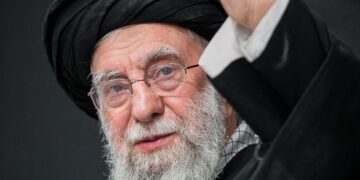The recently proposed Waqf Amendment Bill has stirred debates across the country, drawing strong reactions from various communities, political groups, and religious organizations. While its introduction has been met with opposition from several Muslim groups and leaders, the government remains firm on pushing it through. A positive aspect of the Bill is that it was referred to the Joint Parliamentary Committee (JPC), which conducted nationwide consultations, gathering feedback from key stakeholders. Even the All India Pasmanda Muslim Mahaaz had the opportunity to present its suggestions.
As a State president of All India Pasmanda Muslim Mahaaz Telangana, the perspective on this Bill is rooted in history, practicality, and the realities faced by the community. Waqf properties were originally meant for the welfare of the underprivileged, yet they have rarely served their intended purpose. Instead, over the years, they have become a playground for politicians, Waqf Board officials, and Mutawailis (caretakers), have manipulated these assets for personal gains. The rampant corruption and mismanagement of Waqf properties have led the Government to intervene and introduce amendments.
While many Muslim leaders and organizations are vehemently opposing the Bill, it is essential to acknowledge the dire need for reforms. Waqf properties hold vast potential to uplift marginalized Muslim communities, particularly the Pasmanda Muslims, who form the majority but have been historically neglected. Unfortunately, these properties have been plagued by corruption, illegal encroachments, and poor administration. The Bill introduces some positive changes, such as compulsory representation of women and Pasmanda Muslims in Waqf Boards, increased accountability measures to prevent mismanagement and revised administrative processes aimed at streamlining Waqf management. These provisions deserve recognition and appreciation. The inclusion of Pasmanda Muslims in the decision-making process marks a significant step towards ensuring that Waqf benefits reach those who need them the most.
Despite some positive aspects, the current Bill fails to address core issues effectively. The most pressing concern is its inability to protect Waqf properties from continued encroachments and misuse. Several weaknesses in the Bill must be urgently addressed like lack of strict punishment for Mutawallis and Waqf Board officials who engage in corrupt practices, absence of clear mechanisms to recover encroached Waqf lands, establishment of dedicated Grievance Committees for Waqf Boards, similar to those in other Government bodies like the Revenue Department, failure to introduce transparency in appointments to Waqf Boards to prevent political interference etc. Without these safeguards, Waqf institutions will remain vulnerable to exploitation, and the purpose of reform will be defeated.
One of the biggest issues with the current discourse surrounding the Bill is the irresponsible approach of the Opposition and certain Muslim organizations. Instead of constructively engaging with the Government to suggest practical improvements, they are using the Bill as a tool to incite fear and insecurity among common Muslims. The rhetoric surrounding the Bill is focused more on accusing the Government of anti-Muslim motives rather than addressing the real issues plaguing Waqf institutions. If these organizations had properly managed the Waqf system over the years, there would have been no need for government intervention in the first place. By spreading propaganda and half-truths, these groups are attempting to politically mobilize Muslims rather than ensuring genuine reforms. Pasmanda Muslims, who have historically been denied the benefits of Waqf, must not fall prey to these misleading narratives. The blind opposition by certain Muslim leaders will only serve political interests rather than benefiting
the community. It is time for Pasmanda Muslims to take charge of the narrative and demand reforms that genuinely serve the underprivileged.
The Waqf Amendment Bill has undoubtedly raised concerns, but rejecting it without acknowledging its necessity would be a mistake. While some provisions are commendable, the Bill needs significant improvements to truly safeguard Waqf assets and ensure they benefit the marginalized sections of the Muslim community. Pasmanda Muslims, who have been historically sidelined, must not allow themselves to be used as pawns in political battles. Instead, they should advocate for meaningful reforms, ensuring that Waqf properties are managed efficiently, transparently, and justly. This is a crucial opportunity to hold the system accountable and demand a fair share of Waqf benefits for the most disadvantaged members of our community. The Opposition and certain Muslim organizations must also reflect on their own failures in managing Waqf properties before blaming the Government. Instead of spreading fear and misinformation, they should work towards ensuring better governance and accountability within the Waqf system.
A balanced approach is necessary—neither blind support nor outright rejection will serve the interests of the Muslim community. Pasmanda Muslims must stand firm in their demand for equity, inclusion, and transparency in Waqf affairs. Only then they can ensure that Waqf properties fulfill their true purpose—uplifting the most marginalized sections of Muslim society.
Adnan Qamar is a lawyer, speaker, writer, election analyst and the president of All India Pasmanda Muslim Mahaz, Telangana..




